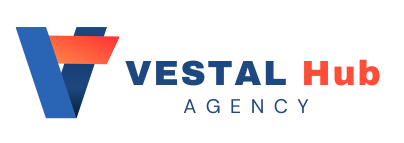In the ever-evolving landscape of search engine optimization (SEO), effective reporting is the compass that guides strategic decisions and fuels continuous improvement. Welcome to the realm of SEO Reporting Mastery, where every data point holds the key to unlocking insights and driving meaningful results. In this comprehensive guide, we’ll delve into the intricacies of SEO reporting and unveil proven strategies to master the art of data analysis, empowering you to track performance, identify opportunities, and propel your website to new heights of success in search engine results pages (SERPs).
Understanding the Importance of SEO Reporting
SEO reporting is more than just crunching numbers—it’s about transforming raw data into actionable insights that inform strategic decision-making and drive tangible results. By tracking key performance metrics, monitoring trends, and identifying areas for improvement, SEO reporting serves as a roadmap for optimizing your website’s visibility, traffic, and conversions in search engine results.
Defining Key Performance Indicators (KPIs)
Before diving into SEO reporting, it’s essential to define clear and measurable Key Performance Indicators (KPIs) that align with your business objectives and SEO goals. Common SEO KPIs include organic traffic, keyword rankings, backlink profile, conversion rates, and engagement metrics. Tailor your KPIs to reflect your unique business goals and priorities, ensuring they provide meaningful insights into your website’s performance in search.
Utilizing Google Analytics and Search Console
Google Analytics and Google Search Console are indispensable tools for SEO reporting, offering valuable insights into website traffic, user behavior, keyword performance, and search visibility. Leverage Google Analytics to track organic traffic, conversion funnels, and user engagement metrics, while using Google Search Console to monitor keyword rankings, click-through rates, and website indexing status.
Analyzing Keyword Performance
Keyword performance analysis is a cornerstone of SEO reporting, providing insights into the effectiveness of your keyword targeting efforts and the competitive landscape within your niche. Track keyword rankings, search volume, click-through rates, and conversion metrics to identify high-performing keywords, discover new opportunities, and refine your keyword strategy for maximum impact.
Monitoring Backlink Profile
Backlinks play a crucial role in SEO, signaling authority, relevance, and trust to search engines. Monitor your website’s backlink profile using tools like Ahrefs, Moz, or SEMrush to track the quantity, quality, and diversity of backlinks pointing to your site. Identify authoritative websites linking to your content, as well as opportunities for acquiring new backlinks through outreach and relationship-building efforts.
Tracking Content Performance
Content is the fuel that powers SEO, and tracking content performance is essential for optimizing your website’s visibility and engagement in search. Analyze content metrics such as page views, bounce rates, time on page, and social shares to identify top-performing content, understand user behavior, and refine your content strategy based on audience preferences and search intent.
Creating Custom Reports and Dashboards
Custom reports and dashboards provide a streamlined way to visualize and communicate SEO insights to stakeholders and decision-makers. Utilize tools like Google Data Studio, Microsoft Power BI, or Tableau to create customized reports that showcase key metrics, trends, and performance indicators in a clear and visually appealing format. Tailor your reports to the needs and preferences of your audience, highlighting the most relevant insights and actionable recommendations.
Measuring ROI and Business Impact
Ultimately, SEO reporting is about measuring the return on investment (ROI) and business impact of your SEO efforts. Calculate the ROI of your SEO campaigns by correlating key metrics such as organic traffic, conversions, and revenue with your SEO activities and investments. Demonstrate the value of SEO to stakeholders by quantifying the business impact of improved search visibility, increased website traffic, and higher conversion rates.
Iterating and Refining Strategy
Effective SEO reporting is an iterative process that requires continuous monitoring, analysis, and refinement of your strategy. Use insights from your SEO reports to identify strengths, weaknesses, and opportunities for improvement. Experiment with new tactics, measure their impact, and adjust your strategy accordingly to drive continuous growth and success in search engine results.
Conclusion
SEO reporting mastery is the key to unlocking insights and driving strategic growth in the competitive world of search engine optimization. By defining clear KPIs, utilizing analytics tools, analyzing keyword and content performance, and creating custom reports, you can gain valuable insights into your website’s SEO performance and make informed decisions to optimize for success. So, embrace the art of SEO reporting mastery today, and watch as your website climbs the ranks and achieves greater visibility and impact in search engine results.

